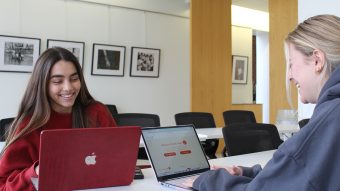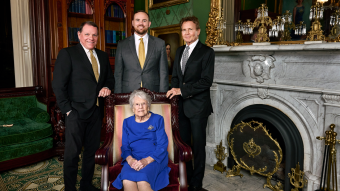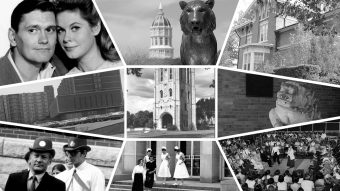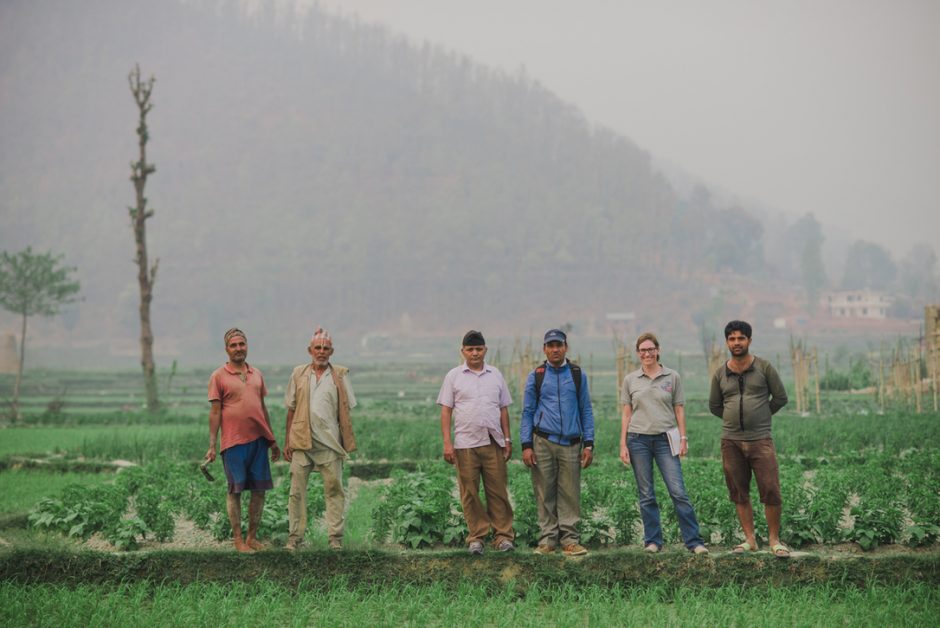
When Kirn was 2 years old, her father’s career in petroleum refining relocated the family from Valdez, Alaska, to the remote South African town of Secunda. Now a veteran world traveler, Kirn knowingly calls it “the middle of nowhere.” But back then, Secunda and its people were her world.
The Kirns employed a local woman, Julia, as a live-in nanny to cook, clean and care for Lindsey and her two brothers. Julia and Lindsey were close, and when Lindsey was 6, the nanny named her new baby after her young American charge. Kirn’s family invited Julia to bring her infant to live with them, but local customs dictated that newborns were to be raised by extended family.
So, mother and child lived apart. Because of the separation, Julia could not breastfeed her infant, and anyway the practice was out of favor at the moment. What’s more, “Local water quality was very bad,” Kirn says. “The baby was given water and contracted cholera. I still remember the moment when Julia received the message that her baby had died. I was sitting on the wall of a courtyard with clotheslines strung across, watching her through the clothes. But I never saw her cry. Women were expected to bear such things. It made a huge impression on me.”
And so, at the age most American children are learning letters, numbers and complementary colors, Kirn resolved to become a physician.
That instinct has guided Kirn to the top of her field. “The best people working in international development have an innate orientation toward positive change. Lindsey is one of those people,” says her boss, Kristi Ragan, a project manager for DAI, a nonprofit that supports the USAID Center for Development Innovation. “Many who come into this work are overwhelmed by the poverty they see when they get off the plane in a developing country, or the people dying in the hospitals they visit, or lack of electricity over great areas. Lindsey believes she can make a difference. I only hire people who believe that, even if it’s Pollyannaish at times.
Mizzou Made
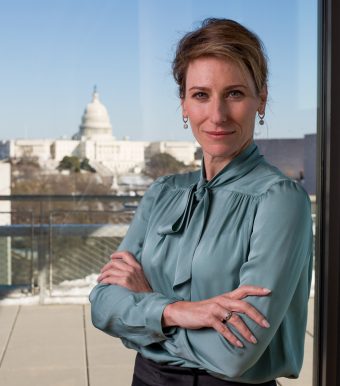
By fall 1993 when Kirn arrived at MU as a freshman, she had been taking science courses for years in preparation for a pre-med curriculum. But when her parents divorced, grief tanked her grades, and medical school moved beyond her reach. Fortunately, she had joined Alpha Chi Omega, which turned out to be both a support system and a platform for her charitable proclivities. “Starting second semester, I was in charge of my own education and paying for it,” Kirn says. “My sorority sisters supported me emotionally, and the sorority worked out a payment plan so I could remain a member.” She worked two or three jobs at a time, including serving food at the Pasta Factory, selling clothes at the Gap and watching over swimmers as a lifeguard, her favorite job because she could study between shifts on the stand.
Alpha Chi Omega and Greek life offered Kirn formative leadership roles. She served as chapter secretary and philanthropy chair, as well as working on the Greek Week steering committee. She led the sorority’s domestic violence program, which raised more than $10,000 across mid-Missouri in 1996 and worked to educate fraternity members about the problem.
Meanwhile, Kirn had switched her major to the helping profession of nursing, thinking of it as a stepping stone to medical school. But problems of time and money loomed, and she decided in her fifth year at Mizzou to graduate with accumulated credits in history and communication. Nursing school would have to wait. She needed a job to pay school loans.
The Corporate Life, Take 1
Kirn shines in interviews. Colleagues marvel at her “dynamism” and the “force of her personality.” Even by phone or Skype, her internal fires of intelligence and professional hunger light up conversations like a rock concert. In 1998, she impressed public relations giant FleishmanHillard sufficiently that they hired her on the spot during their first meeting and shipped her off immediately to an investor relations job in Dallas. For the first time since Kirn was 6, she left the path she’d set for herself.
Perhaps predictably, she didn’t take to the job (“It wasn’t my passion.”) and left in 18 months. A second public relations job, this one in travel and tourism, ended the same way (“I wasn’t doing what I was called to do.”), and so Kirn turned back toward her core.
By 2002, Kirn had landed a regional post in women’s health with the U.S. Department of Health and Human Service, U.S. Public Health Service. She traveled five states on the job and enrolled in a public health master’s program at the University of Texas, where she was the lone communication specialist studying alongside medical students.
Even at the low-level HHS position, Kirn’s work caught the attention of an administrator, Rear Admiral Ronald Banks. One day, he summoned her to his office.
“Sit down,” he said, head down as he continued dealing with papers. Finally, he looked up.
“What are you doing here?” he said. Banks’s tone seemed chiding. Kirn didn’t understand the question.
“Well, I’m working for the Office of … .”
“You’re not getting paid what you are worth,” Banks said firmly. “I want you to promise me that when you finish school you will leave for someplace that understands your value.”
And that’s what she did.
The Corporate Life, Take 2

With Banks’s gruff, tough-love recommendation, a master’s degree and two years of public health experience in hand, Kirn returned to FleishmanHillard in 2004. But this time she worked as a communicator on health issues she cared about. She blew the doors off.
In eight years, Kirn rose from a managing supervisor position to senior vice president as she crafted and managed behavior-change communication for major corporate clients (Merck, Novartis, Pfizer) and massive government programs including the Affordable Care Act. She also led more than 30 advertising, PR, research, and other professionals in rebranding Food Stamps to its current Supplemental Nutritional Assistance Program, or SNAP. Along the way, she fed millions, as her leadership helped swell SNAP’s rolls by 26 million people who were eligible but had not been participating.
FleishmanHillard offered Kirn a chance at partner, but, she says, “I declined. It would have meant doing less of the work.” The kind of work she loves. In 2009, for instance, the job had taken her to Kigali, Rwanda, to study locals’ behaviors and perceptions regarding schistosomiasis, or schisto for short, a disease in which hookworms cause blood loss that robs children of iron, and slows growth and cognitive development.
“I went to rural districts outside Kigali and talked to many, many people, trying to figure out why they had so much schisto and how to curb the transmission. On almost the last day of one-on-one interviews with health professionals and community health workers, I was walking down a dirt road near the clinic. I looked over toward the lake and saw women in the water fishing while carrying babies on their backs. Schisto is transmitted through freshwater snails. I looked over the other direction and saw men sitting in their huts drinking beer and wearing long rubber boots that protect against the disease. So, it turned out to be just as much about gender as about poverty. But it took me being there and observing it to understand what was going on. Before I left, I wrote a behavior-change plan to address the issue.”
Back Home
From an office within sight of the U.S. Capitol, Kirn now directs communication and technical teams in charge of making the best use of technology and innovation across international development programs. She could name, for instance, after an exhaustive global search employing various media and search strategies, the handful of companies on the planet producing solar-powered refrigerators that could store critical medication or run a business off the grid. Being in a position to deploy such technology could not only save countless lives, but dramatically improve them.
“Lindsey loves being in the field,” observes Ragan, her boss. “But if you have the experience, skills and are articulate and passionate, you need to use your influence where you can make significant change. Oftentimes, that’s at headquarters. Much as we might like, we can’t go village by village fixing problems. If you can change one thing in D.C., you have the possibility to change it in a hundred countries around the world.”
In 2012, after the global newborn conference, Kirn drove back to the remote town of Secunda, where as a child she’d resolved to live her life in service. “I went to find the old house, but of course everything had changed,” she says. “Still, addressing preventable newborn and child deaths is what I set out to do, and I got to be there for the first global conference focusing on that very issue. Getting there wasn’t easy, but you know you’re doing the right thing when life comes full circle like that.”
